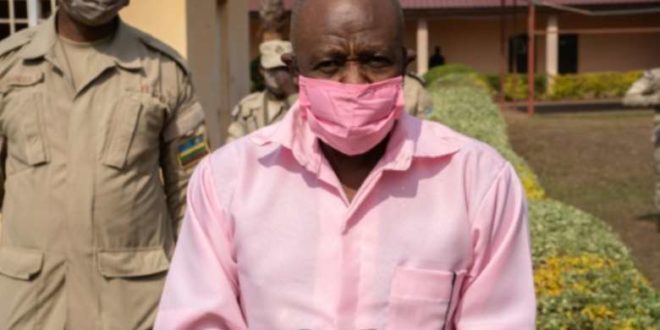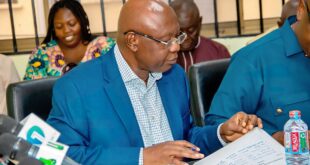Ailing “Hotel Rwanda” hero Paul Rusesabagina was set to be released after the government said on Friday it has commuted a 25-year jail sentence against the fiercely outspoken critic of President Paul Kagame.
The announcement comes less than two weeks after Kagame said Kigali was looking into resolving Rusesabagina’s case, which has been a cause of concern for the West and global rights groups.
“Paul Rusesabagina and (co-defendant) Callixte Nsabimana have had their prison sentences commuted by presidential order, after consideration of their requests for clemency,” government spokeswoman Yolande Makolo told AFP.
The sentences of another 18 people convicted of terrorism offences alongside Rusesabagina in September 2021 have also been commuted, she said, highlighting the role of the United States and Qatar in resolving the case.
But Makolo added: “No one should be under any illusion about what this means, as there is consensus that serious crimes were committed, for which they were convicted.”
A government source told AFP on condition of anonymity that Rusesabagina and the other prisoners were expected to be released on Saturday.
Rusesabagina, now 68, was jailed after a trial his supporters denounced as a sham that was plagued with irregularities. He has now been detained for 939 days, according to the Free Rusesabagina website.
His family, which has long warned about Rusesabagina’s deteriorating health and voiced fears he could die in prison, told AFP it was looking forward to reuniting with him.
“We are pleased to hear the news about Paul’s release. The family is hopeful to reunite with him soon,” the family said in a statement.
Rusesabagina, then the manager of a Kigali hotel, is credited with helping to save about 1,200 lives during the 1994 genocide in which about 800,000 people were slaughtered, mainly Tutsis but also moderate Hutus.
Rusesabagina, whose story inspired the Oscar-nominated 2004 movie “Hotel Rwanda” starring US actor Don Cheadle, became a vocal critic of Kagame, founding his own party.
His tirades against Kagame led him to be treated as an enemy of the state.
Rights groups accuse Rwanda — ruled with an iron fist by Kagame since the end of the genocide — of cracking down on free speech and opposition.
‘Wrongfully detained’
Speaking via videolink at the Global Security Forum in Qatar’s capital Doha on March 13, Kagame had signalled a possible softening in Rwanda’s approach to Rusesabagina’s case.
“There is discussion, there is looking at all possible ways of resolving the issue without compromising the fundamental aspects of that case. I think there is going to be a way forward,” he said at the time.
Makolo said on Friday that Rwanda “notes the constructive role of the US government in creating conditions for dialogue on this issue, as well as the facilitation provided by the State of Qatar”.
Last year, the United States said Rusesabagina — who holds Belgian citizenship and a US Green Card — was “wrongfully detained” after a plane carrying him to Burundi was diverted to Rwanda in August 2020.
Also in 2022, the UN Working Group on Arbitrary Detention issued an opinion concluding that Rusesabagina had been “abducted” and that his detention was “arbitrary”.
Rusesabagina’s family said he was tricked into travelling from his US home with the promise of work in Burundi and that he was tortured while in detention.
Torture allegations
“His release would conclude a case that has highlighted Rwanda’s blatant disregard for international norms when it seeks to target people deemed an enemy of the state — even those far beyond their border”, Lewis Mudge, central Africa director at Human Rights Watch, told AFP.
US Secretary of State Antony Blinken and rights groups earlier raised the case with Rwanda, although Kagame said last year that Washington could not “bully” him into ordering a release.
Rusesabagina was accused of supporting the National Liberation Front (FLN), a rebel group which is blamed for attacks inside Rwanda in 2018 and 2019 that killed nine people.
He denied any involvement in the attacks, but was a founder of the Rwandan Movement for Democratic Change (MRCD), an opposition group of which the FLN is seen as the armed wing.
Rusesabagina’s family last year filed a $400 million lawsuit in the United States against Kagame, the Rwandan government and other figures for allegedly abducting and torturing him.
In 2005, Rusesabagina received the highest US civilian award, the Presidential Medal of Freedom.
By Ivan Rush MUGISHA
 Home Of Ghana News Ghana News, Entertainment And More
Home Of Ghana News Ghana News, Entertainment And More




